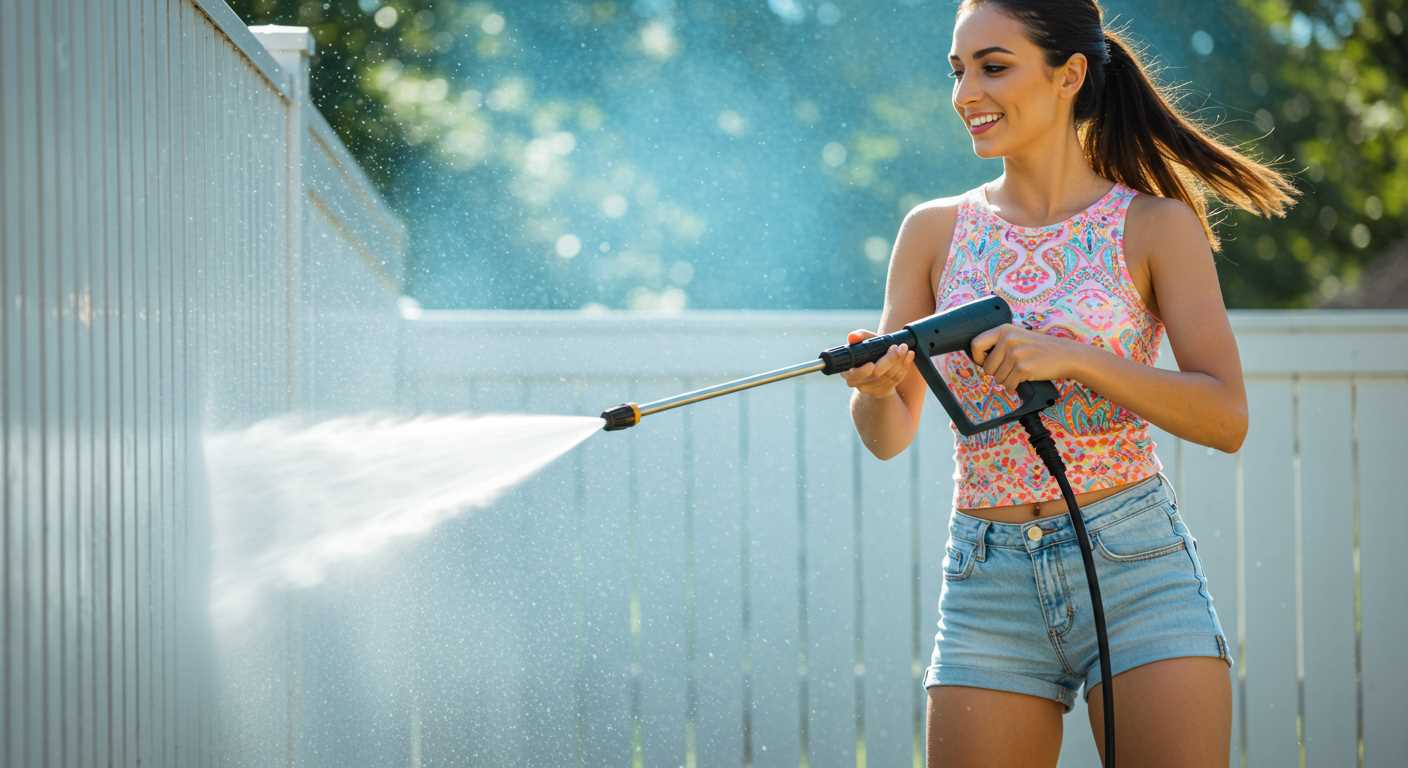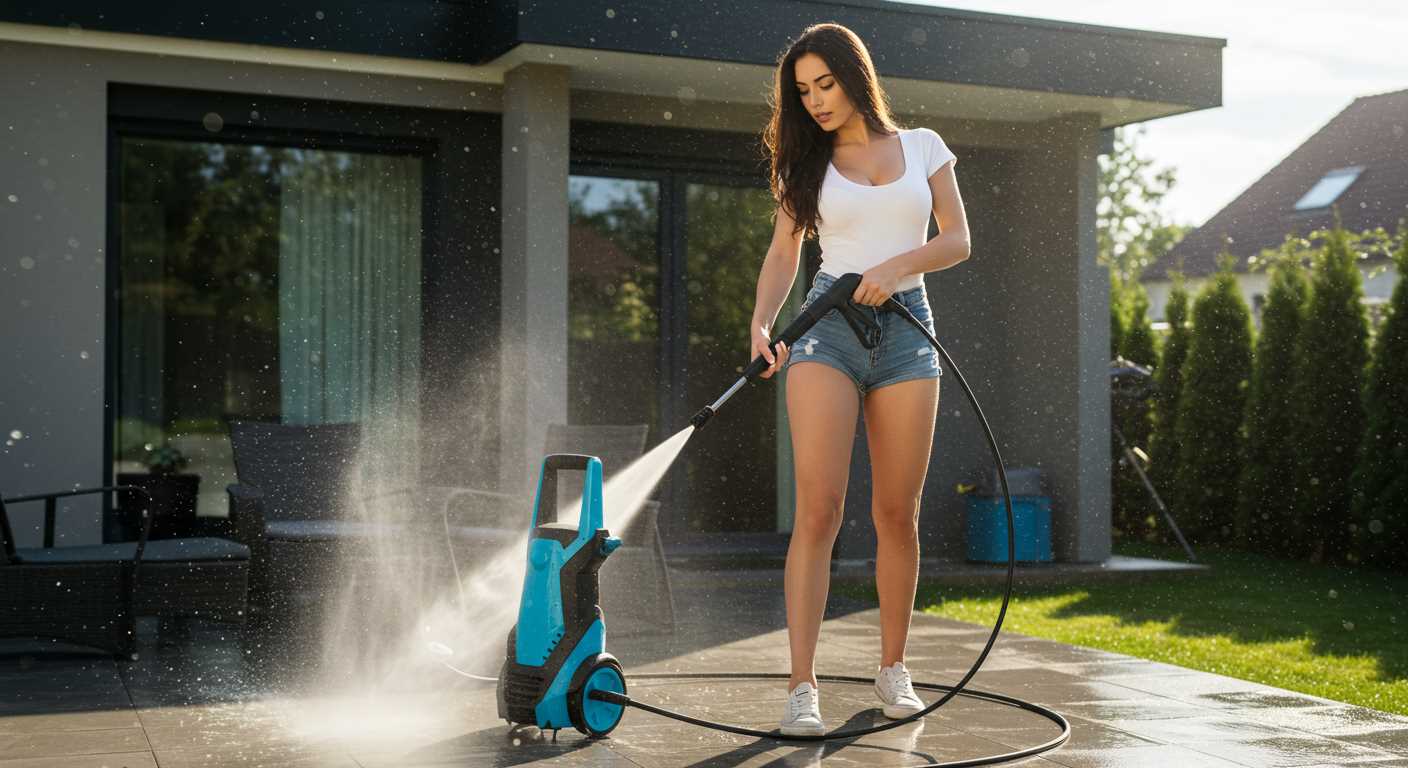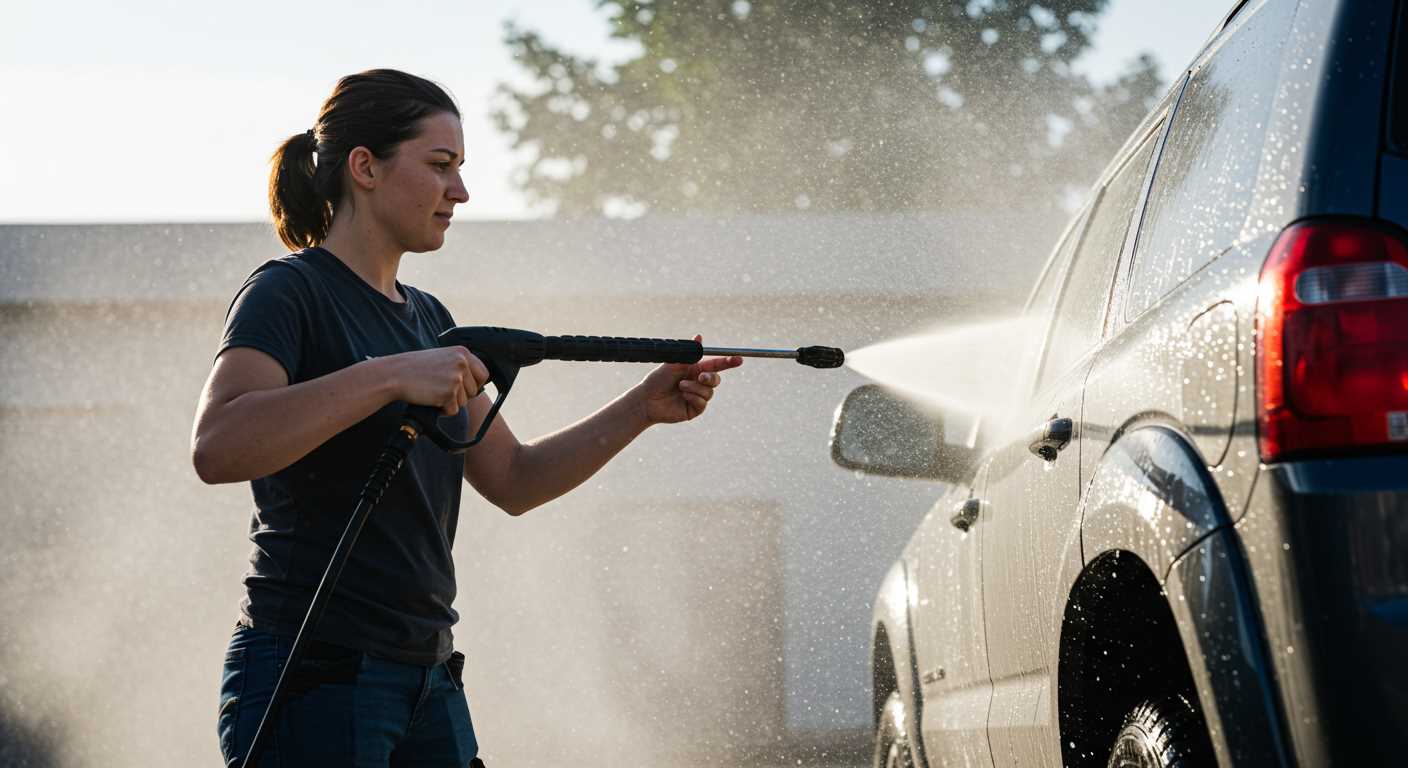




As a homeowner, I know how important it is to maintain the exterior of our properties, especially when it comes to brick houses. Over time, dirt, grime, and moss can accumulate on brick surfaces, making them look tired and worn. That’s why I set out to find the best pressure washer specifically designed for brick houses, and in this article, I’ll share my findings with you.
This article is aimed at homeowners who want to keep their brick exteriors looking pristine without the hassle of manual cleaning. Whether you’re preparing for a family gathering, selling your home, or simply wanting to enhance your property’s curb appeal, a pressure washer can be a game-changer. I will provide you with a comprehensive guide on the top pressure washers available, highlighting their features, benefits, and what to look for when making your choice.
In summary, you’ll learn about the best pressure washers for brick houses, including their specifications and user reviews. I will also discuss essential tips for using a pressure washer effectively on brick surfaces to ensure you achieve the best results while avoiding damage. With the right equipment and knowledge, you’ll be well on your way to reviving the beauty of your brick home.
Understanding Pressure Ratings for Brick Cleaning
When it comes to cleaning a brick house, understanding pressure ratings is essential to ensure effective and safe cleaning. Pressure washers are rated by their pressure output in pounds per square inch (PSI), which indicates the force with which water is expelled from the nozzle. This rating is critical for brick cleaning, as using the right pressure can mean the difference between a thorough clean and potential damage to the surface.
Different types of bricks may require varying pressure levels. For instance, softer bricks or older masonry can be more susceptible to damage from high-pressure water jets, while more durable bricks might withstand higher pressure. Knowing the appropriate PSI range for your specific brick type helps to maintain the integrity and appearance of the surface.
Factors to Consider for Pressure Ratings
Several factors influence the choice of pressure ratings when cleaning brick surfaces:
- Brick Type: Different bricks have different levels of porosity and hardness, which affects how much pressure they can handle.
- Stains and Dirt: Heavier stains may require higher pressure, while routine cleaning can often be performed at lower pressures.
- Distance from Surface: The distance between the nozzle and the surface can affect the effective pressure; closer distances usually mean higher impact.
- Angle of Spray: The angle at which water is sprayed can also influence the effectiveness of cleaning and the risk of damaging the bricks.
In general, a pressure washer with a PSI range of 1500 to 3000 is often recommended for cleaning brick. However, always start with the lowest effective pressure and gradually increase as needed. This approach helps to prevent any unwanted damage while ensuring a clean and refreshed appearance for your brick house.
Key Features to Consider in a Pressure Washer
When selecting a pressure washer for your brick house, it’s essential to focus on certain features that will enhance efficiency and effectiveness. Understanding these features can help ensure that you invest in a machine that meets your cleaning needs while protecting your property.
One of the primary considerations is the pressure output, measured in PSI (pounds per square inch). Higher PSI ratings can effectively remove dirt and grime from tough surfaces like brick. However, it’s crucial to balance pressure with the right nozzle to prevent damage to the material.
Essential Features
- Water Flow Rate: Measured in GPM (gallons per minute), a higher flow rate means more water is used, which can aid in cleaning efficiency.
- Adjustable Pressure Settings: This feature allows users to control the intensity of the pressure, making it suitable for various surfaces and cleaning tasks.
- Nozzle Options: Different nozzles provide versatility, enabling you to adapt the pressure washer for different cleaning tasks, from light washing to heavy-duty cleaning.
- Portability: A lightweight and easily manoeuvrable design can significantly enhance usability, especially for larger properties.
- Durability: Look for pressure washers made with high-quality materials that can withstand regular use and varying weather conditions.
In addition to these features, consider the power source. Electric models are generally quieter and easier to maintain, while gas models tend to offer more power, making them suitable for extensive cleaning jobs.
Ultimately, choosing the right pressure washer involves assessing your specific cleaning needs and ensuring the machine can handle the unique requirements of a brick house. By focusing on these key features, you’ll be better equipped to select a pressure washer that delivers optimal performance and longevity.
Recommended Models for Effective Brick Maintenance
When it comes to maintaining a brick house, selecting the right pressure washer is crucial for preserving the integrity and appearance of the brickwork. Effective cleaning not only enhances curb appeal but also prevents the accumulation of dirt, moss, and mildew that can lead to long-term damage. An ideal pressure washer should provide the right balance of power, versatility, and ease of use.
For optimal results, consider models that offer adjustable pressure settings. This feature allows you to tailor the intensity of the spray according to the specific cleaning needs of your brick surfaces. Lower settings are essential for delicate areas, while higher settings can effectively tackle stubborn grime.
Key Features to Look For
- Pressure Range: Look for washers that provide a range between 1300 to 3000 PSI, suitable for various cleaning tasks.
- Water Flow Rate: A higher GPM (gallons per minute) can enhance cleaning efficiency, especially for larger areas.
- Attachments: Consider models that come with specific nozzles for bricks, as these can help direct the water flow more effectively.
- Portability: Choose a lightweight design with wheels for easy manoeuvrability around your property.
Additionally, it’s beneficial to select a model with a durable construction, as it will withstand frequent use and various weather conditions. A machine with a reliable warranty can also provide peace of mind regarding long-term performance.
Ultimately, investing in the right pressure washer tailored to the unique needs of your brick house will ensure longevity and maintain its aesthetic appeal. Regular maintenance using the appropriate equipment will keep your brick surfaces looking pristine for years to come.
Essential Accessories for Optimal Performance
When using a pressure washer to maintain the exterior of a brick house, having the right accessories can significantly enhance its effectiveness. These tools not only improve cleaning efficiency but also ensure that the pressure washer operates at its best, prolonging its lifespan and providing excellent results.
Among the essential accessories are various nozzle types, which help in adjusting the pressure and spray pattern according to the surface being cleaned. Different surfaces require different levels of pressure; using the right nozzle prevents damage to the brick while effectively removing dirt and grime.
Key Accessories to Consider
- Nozzle Tips: Different coloured nozzle tips provide varying spray angles, allowing for tailored cleaning approaches.
- Extension Wands: These increase reach, making it easier to clean high or hard-to-reach areas without the need for ladders.
- Surface Cleaners: Ideal for large flat surfaces, these attachments provide an even clean without streaking.
- Soap Dispensers: Useful for applying detergents effectively, ensuring a deeper clean for tough stains.
- Hoses and Reels: High-quality hoses allow for flexibility and manoeuvrability, while reels help keep hoses organised and tangle-free.
Investing in these accessories not only optimises the pressure washer’s performance but also enhances the cleaning experience. By choosing the appropriate tools, homeowners can ensure that their brick house remains in pristine condition, showcasing its beauty for years to come.
Safety Tips When Using a Pressure Washer on Brick
Using a pressure washer can be an effective way to clean the exterior of a brick house, but safety should always be a priority. The high-pressure water stream can cause injuries or damage if not handled properly. Understanding the correct techniques and precautions can help ensure a safe and successful cleaning experience.
Before starting, it is crucial to wear appropriate safety gear. This includes protective eyewear to shield your eyes from flying debris, gloves to protect your hands, and sturdy footwear to prevent slips on wet surfaces. Furthermore, consider wearing long sleeves and pants to protect your skin from any accidental splashes.
Preparation and Handling
Before using the pressure washer, it’s essential to prepare the area properly. Clear the vicinity of any obstacles, such as furniture or decorative items, that could be damaged by the pressure washer. Ensure that all windows and doors are closed to prevent water from entering the house.
- Check Equipment: Inspect the pressure washer for any signs of damage, especially the hoses and connections, to avoid leaks or bursts during operation.
- Use the Right Nozzle: Select a nozzle appropriate for brick surfaces. A wider spray pattern can help prevent damage to the masonry.
- Maintain Distance: Keep the nozzle at least 12 inches away from the brick surface to avoid eroding the mortar or damaging the bricks.
While operating the pressure washer, it is important to maintain a steady grip and avoid aiming the nozzle at people, pets, or fragile objects. Always point the nozzle downward to reduce the risk of water ricocheting off the surface.
After finishing the cleaning, it is advisable to inspect the brickwork for any damage that may have occurred during the process. This includes checking for loose bricks or compromised mortar joints that may need attention.
Maintenance Practices for Your Pressure Washer
Maintaining your pressure washer is essential for ensuring optimal performance and longevity. Regular maintenance not only keeps your machine in top condition but also helps prevent costly repairs in the future. By following simple maintenance practices, you can enjoy the benefits of your pressure washer for years to come.
Here are some key maintenance practices to consider for your pressure washer:
- Clean the Filter: Regularly check and clean the water filter to prevent debris from clogging the system.
- Inspect the Hoses: Look for any signs of wear or damage on the hoses. Replace them if you notice any cracks or leaks.
- Check the Oil: If you have a gas-powered model, ensure the oil is at the proper level and change it according to the manufacturer’s recommendations.
- Store Properly: After use, store your pressure washer in a dry place to avoid moisture damage. Consider using a cover to protect it from dust and debris.
- Run Pump Saver: Using a pump saver solution can help protect the internal components from freezing and corrosion.
By implementing these maintenance practices, you can keep your pressure washer running smoothly and effectively. Regular care not only enhances performance but also extends the life of the machine, making it a worthy investment for your cleaning needs.
Top 10 Best Pressure Washer For Brick House






Best Pressure Washer For Brick House
Features
| Part Number | 10-100-282 |
| Model | P70 |
| Warranty | Up to 20 Year Warranty (Subject to service every 5 years). |
| Color | Ava Charcoal/Ava Green |
| Size | Large Bundle |
Features
| Part Number | 1.637-500.0 |
| Model | 1.637-500.0 |
| Color | Black, Yellow |
| Language | French |
Features
| Part Number | ePX3100v |
| Model | ePX3100v |
| Color | Black |
| Size | 2100 Max PSI |
Features
| Model | 7abd6aa0-b969-404f-a9df-c10d65f4cb7d |
| Color | Silver |
Features
| Part Number | WG633E.9 |
| Model | WG633E.9 |
| Warranty | Three years when registered online |
| Color | Black |
Features
| Part Number | PW2400COMBO |
| Model | PW2400COMBO |
Video:
FAQ:
What features should I look for in a pressure washer for cleaning a brick house?
When selecting a pressure washer for a brick house, consider the following features: the pressure output, measured in PSI (pounds per square inch), which should be at least 2000 PSI for effective cleaning. A flow rate, measured in GPM (gallons per minute), of around 2.0 to 2.5 GPM is also beneficial for rinsing off debris quickly. Look for models with adjustable nozzles or interchangeable tips to cater to different cleaning tasks, as well as a detergent tank to apply cleaning solutions if necessary. Additionally, consider the power source; electric models are quieter and easier to maintain, while gas models typically offer more power. Lastly, ensure the unit is portable and comes with a sturdy hose to reach high or difficult areas.
Can I use a pressure washer on my brick house without damaging it?
Yes, you can use a pressure washer on a brick house, but caution is required to avoid damage. It’s important to select the right pressure setting – generally, a PSI of around 2000-2500 is safe for most brick surfaces. Always use a fan spray nozzle, as this distributes the pressure and reduces the risk of chipping or loosening bricks. Keep the nozzle at least 12 inches away from the surface to prevent any potential damage. Additionally, avoid using hot water, as this can harm the mortar between the bricks. If in doubt, test a small, inconspicuous area first to observe how the brick reacts.
How often should I pressure wash my brick house?
The frequency of pressure washing your brick house can depend on several factors, including the local climate, the amount of rainfall, and the surrounding environment. Generally, it is recommended to pressure wash your brick home at least once a year. However, if your home is exposed to heavy pollution, dust, or if there is a lot of vegetation nearby that can promote moss or mildew growth, you may need to clean it more frequently – perhaps every six months. Regular cleaning helps maintain the aesthetic appeal of your home and prevents the buildup of dirt and grime that can lead to more serious issues over time.
What detergents are safe to use with a pressure washer on brick?
When cleaning brick with a pressure washer, it’s advisable to use a pH-neutral detergent specifically formulated for pressure washing. These detergents are designed to effectively break down dirt, grime, and algae without damaging the brick or mortar. Avoid using bleach or acidic cleaners, as they can weaken the bricks and cause discolouration over time. Many pressure washer manufacturers offer compatible detergents, which are often a safe choice. Always follow the manufacturer’s instructions for dilution and application to achieve the best results.
Are there any specific brands of pressure washers recommended for brick houses?
Several brands are known for producing reliable pressure washers suitable for cleaning brick houses. Some of the most recommended brands include Simpson, Sun Joe, and Honda. Simpson offers a range of gas-powered models with high PSI ratings, ideal for tougher cleaning tasks. Sun Joe provides excellent electric pressure washers that are user-friendly and effective for regular maintenance. Honda engines are known for their durability and power, making them a good choice for frequent use. It’s beneficial to read customer reviews and compare models within these brands to find one that meets your specific needs.
What features should I look for in a pressure washer for cleaning a brick house?
When selecting a pressure washer for a brick house, consider the following features: Firstly, the pressure rating is key; a washer with at least 2000 PSI (pounds per square inch) will effectively remove dirt and grime from brick surfaces. Secondly, a good flow rate, measured in GPM (gallons per minute), will help ensure that water is delivered efficiently. Look for models that offer adjustable pressure settings, which allow you to tailor the cleaning power depending on the level of dirt. Additionally, a variety of nozzles can enhance versatility, enabling you to switch between different spray patterns for various cleaning tasks. Finally, consider the weight and portability of the machine, especially if you need to manoeuvre it around your property.
Can I use any detergent with my pressure washer when cleaning my brick house?
It is important to use the right type of detergent with your pressure washer when cleaning a brick house. Most pressure washers are compatible with a range of detergents specifically formulated for pressure washing. Look for products that are safe for use on brick surfaces and are designed to break down tough stains, mildew, and algae. Avoid using harsh chemicals or household cleaners not intended for pressure washers, as these can damage the machine or the surface being cleaned. Always follow the manufacturer’s guidelines for detergent use and dilution ratios to ensure optimal cleaning results without harming your equipment or the brick.




.jpg)


